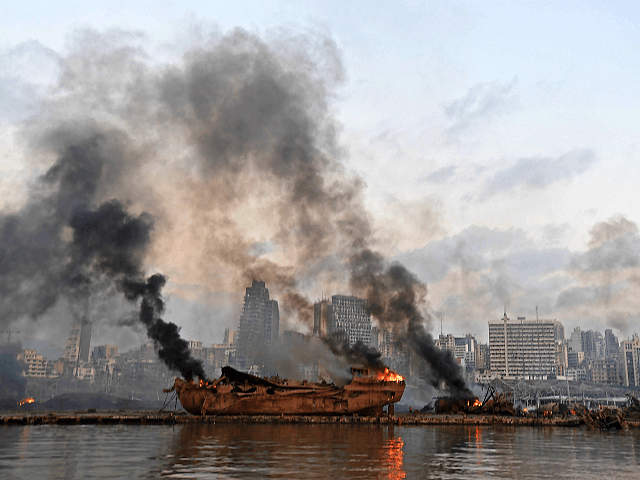Col. Joseph Skaf, former chief of drug control for the Lebanese customs agency, wrote a letter in 2014 warning that a cargo of 2,750 tons of ammonium nitrate seized from a Russian-owned ship the previous year at the Port of Beirut was “highly dangerous and constitutes a threat to public safety.”
Skaf died under cloudy circumstances in 2017, while the cargo he warned about evidently detonated on Tuesday, causing over a hundred deaths and wiping out a sizable portion of the city.
Skaf’s 2014 letter specifically referred to MV Rhosus, the cargo ship filled with ammonium nitrate that was detained in Beirut on its way to Mozambique in 2013. The substance is purchased in bulk for use as fertilizer, but is also highly explosive and prized by terrorists – from Lebanon’s Hezbollah to the Oklahoma City bomber in 1995 – as bomb-making material.
There is some confusion about exactly what happened to the ammonium nitrate, but as of 2014, Skaf’s letter stated it was still on board the Rhosus, which was impounded by the Lebanese government for safety and mechanical issues. The ship’s cargo – and, for a time, the crew – were kept in Beirut to pressure the owner, Russian businessman Igor Grechushkin, into paying the ship’s fees.
Skaf is one of several Lebanese officials who went on the record saying this was a bad idea, and in any event it did not work, because Grechushkin declared bankruptcy after the ship was seized. Some government sources in Lebanon have expressed surprise over the past few days that the ammonium nitrate cargo was not auctioned off during the past six years, or distributed to Lebanese farmers for use as fertilizer.
The Saudi network Al-Arabiya on Friday found Skaf’s fate suspicious, without explicitly accusing anyone of bumping him off to silence his warnings about the ammonium nitrate stockpile:
Skaf died in 2017, but the cause of death wasn’t determined definitively as there were two conflicting autopsy reports.
Major Lebanese newspaper an-Nahar reported at the time: “Did the retired Colonel Joseph Skaf’s foot slip or was he thrown off a height of three meters? A question which remains unresolved, especially after the two contradictory forensic reports commissioned by the Public Prosecution from two medical examiners,” citing a source in Lebanon’s Internal Security Forces (ISF).
The ISF source said at the time: “One of the two reports rules the incident an accident, and the other confirms that it was deliberate due to finding bruises on the deceased’s head.”
Skaf was hardly the only official to voice concerns about the Rhosus cargo over the years. Among other red flags, customs officials pleaded repeatedly with a judge to order the cargo moved out of the port, but the judge claimed not to have the jurisdiction to issue such an order.
As the shock of the horrifying port explosion fades, the Lebanese public is growing very angry about the number of warnings that were inexplicably ignored. 16 people have been taken into custody by the police for questioning in relation to the explosion, most of them reportedly port or customs officials.

COMMENTS
Please let us know if you're having issues with commenting.